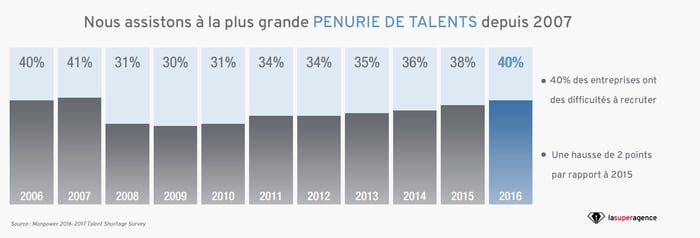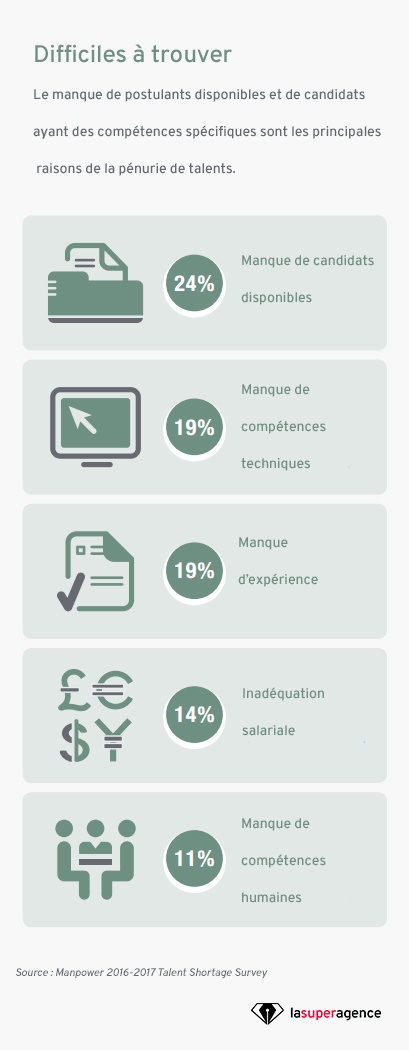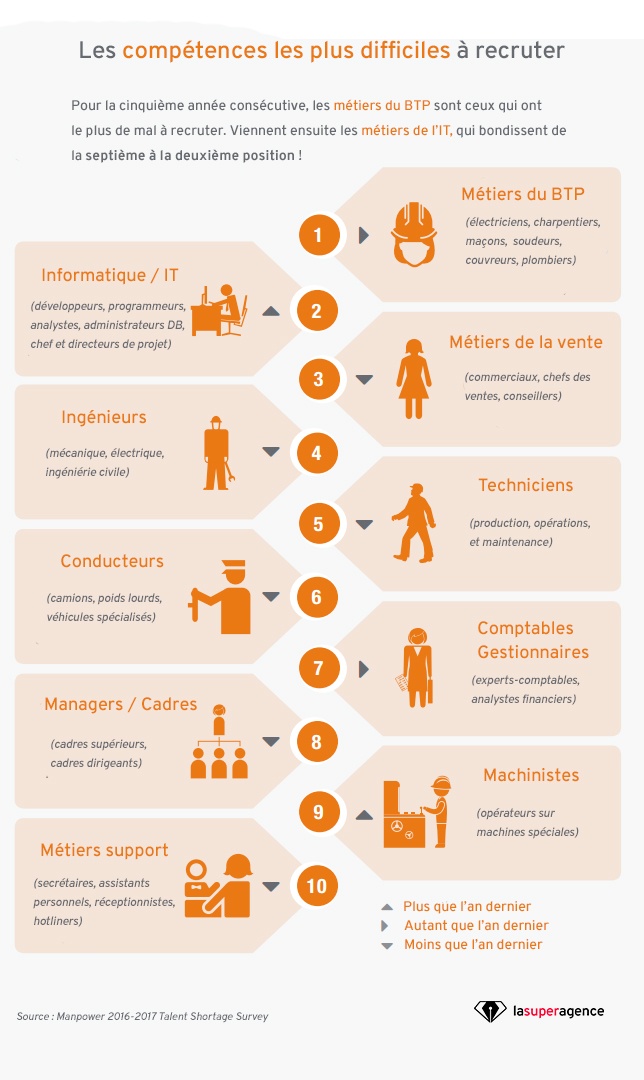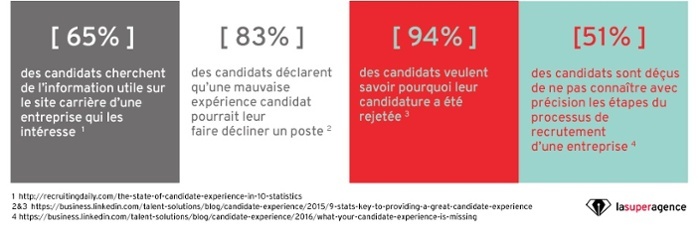The war for talent has been going on for a long time and everyone seems to be losing it - with the possible exception of some startups!
This was noted (globally) in a recent study released by ManpowerGroup which shows that the talent shortage has reached an all-time high since 2007.

The difficulty in recruiting rare skills is due to several factors. A quarter of employers point to the lack of (quality) candidates available for the position they are offering. They implicitly acknowledge that such talent exists but that they are unable to secure its interest.
This shows an initial need for visibility - even recognition - that can be addressed via a Inbound Recruiting approach (as we'll see later).
The other reason cited is lack of technical competence, which would be more related to training issues.

Then comes the sectorization of the talent to be recruited. We imagine that the professions closely or remotely related to IT are the most difficult to fill.
In just two years, they have effectively become the second most difficult skill to recruit after the construction trades, which have been in first place for a while.
Nothing new under the sun, but this infographic indicates that the range of rare profiles extends far beyond that, particularly with sales occupations, engineers, machine operators and accounting and finance-related occupations.

Faced with this observation, what is the solution to seduce rare profiles?
L'Inbound Recruiting, pour 5 raisons :
1 - Be visible to " unavailable"
candidates.Beginning with the first observation, a company looking to recruit must first learn how to make itself known to candidates, just as it does to its customers.
It's no longer just about being visible to active candidates, i.e., those who take the step of going to specialized job board-type sites, but also to professionals who are not in direct search: the famous passive candidates, even though this term should be put into perspective.
Based on a precise definition of candidate-types (the Candidate personas), Inbound Recruiting makes it possible to work on keyword sequences as well as outreach strategies (via, for example, social networks), making it possible to reach all of the candidates who are likely to apply for a specific position.
2 - Provide a better candidate experience
The candidate experience must be thought through for each stage of recruitment and requires real attention to detail.
It places the talent as a target, just as a CRM positions the client at the center of the strategy. For it to be truly effective, it must be established well before the first interview.

Inbound Recruiting ensures a successful candidate experience by acting on four aspects:
- Increasing the visibility of the employer brand on the Internet .
- The provision of truly useful information for candidates
- The ability to react to questions from future candidates
- The explanation of rejections after the interview
3 - Specialize its approach on the jobs in tension
If profiles are particularly scarce in certain fields, it's because they are courted by a large number of players.
Therefore, it is important that men and women with high-demand skills be the target of your communication, or better yet, your employer-brand!
Inbound recruiting has the advantage of starting with the precise identification of the behaviors and preferences of targeted candidates (via Candidate Personas as explained above). Thanks to this preliminary work, the company can showcase its expertise in the sectors it wishes to employ and thus attract the best profiles.
4 - Lower talent acquisition costs over time
The problem with the war for talent -like all wars for that matter -is that it is expensive.
For example, according to a study by the Blur Group, the overall cost of hiring a mobile app developer increased 39% between January 2015 and January 2016.
By working on attracting talent over time, i.e., by setting up a talent pipeline rather than working on a piecemeal basis, Inbound Recruiting helps decrease the cost of acquiring profiles by 54%!
A substantial and very welcome saving at a time when HR budgets are experiencing a downturn.
5 - Working over time with automated emailing
This action is called, in the jargon of marketers, "Marketing Automation". It works just as well, if not better, in the recruiting world. Why?
Candidates are less used to being treated well than consumers. At best they receive an occasional hyper-generalist newsletter that they will rarely open.
With Marketing Automation, it is possible to regularly send relevant information to candidates who have shown interest in an employer brand.
Candidates who become familiar with an employer brand are found to be more likely to apply. According to a study by Forrester Research, after seven exposures to an employer brand (in a supportive environment, of course), a passive candidate may consider joining a company.
The Inbound Recruiting is therefore a frighteningly effective weapon for getting ahead in the talent war.
It calls for certain tactics, but more importantly, it calls for an overall strategy capable of anchoring an employer brand with candidates in a lasting way, for mutual benefit!









